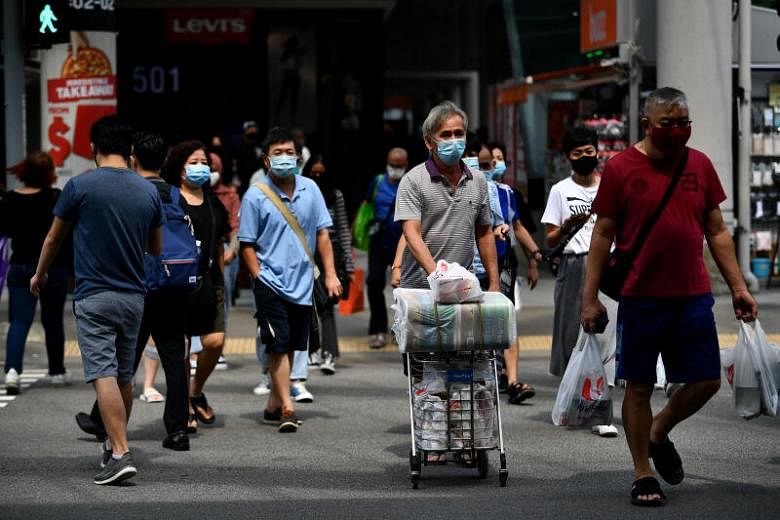SINGAPORE - Singapore should be prepared for a second wave of infections, even as the number of community cases remains low, Health Minister Gan Kim Yong said on Friday (July 17).
The number of community cases of the coronavirus averaged 12 per day last week, similar to the figures in the first week of July, the task force handling the Covid-19 outbreak revealed during a virtual press conference.
This is despite the fact that testing of individuals with symptoms of acute respiratory infection has been scaled up significantly, with about 2,400 such cases now tested a day on average.
About half of the community cases over the past two weeks have been unlinked.
Of these, about seven in 10 were asymptomatic, and almost half are likely to be past infections, as they tested positive under serology tests, Mr Gan said.
Among the unlinked community cases, a large proportion of them are linked to the construction and related sectors, he added.
That the figures have remained stable despite rigorous screening suggests that the prevalence in the community is low, but it is no time to be complacent, as "we are not out of the woods yet", he warned.
Many countries such as the United States and Brazil are still reporting surges in the number of Covid-19 cases, and the World Health Organisation has recently warned that the situation will get worse, unless there is a collective effort to control the transmission of the virus, said Mr Gan.
While some countries including China and New Zealand have largely managed to bring the outbreak under control, several others are experiencing a resurgence of cases weeks after they lifted strict social distancing measures, he noted.
Some have had to reintroduce restrictions in an attempt to bring the transmission under control, he added.
"We must be prepared for a second wave too. But we must do our best to avoid it, if we can."
The Health Ministry's review of overseas case studies has found that in many countries or regions where there had been a resurgence, it was because safe management and safety distancing measures were not adhered to, Mr Gan said.
Some had gone out while unwell and mingled in large groups, such as at religious events and parties, he noted.
In Tokyo, for example, more than 300 cases have been linked to nightlife establishments, while in Hong Kong, there have been outbreaks at restaurants as patrons failed to put their mask back on after completing their meals.
Lapses in safe management measures at the workplace have also resulted in large clusters in many regions, Mr Gan said.
"I know many Singaporeans and organisations are keen for more flexibility and further relaxation. But from these examples, we know there are settings and activities that are more susceptible to transmission, where there is close and prolonged contact among individuals."
These include workplaces, religious gatherings and nightlife establishments.
This is why Singapore has taken a cautious approach to easing restrictions on higher risk activities, while at settings such as workplaces, strict measures have been put in place to reduce the risk of spread.
"Some of these measures create inconvenience, but it is better to be safe," he said.












